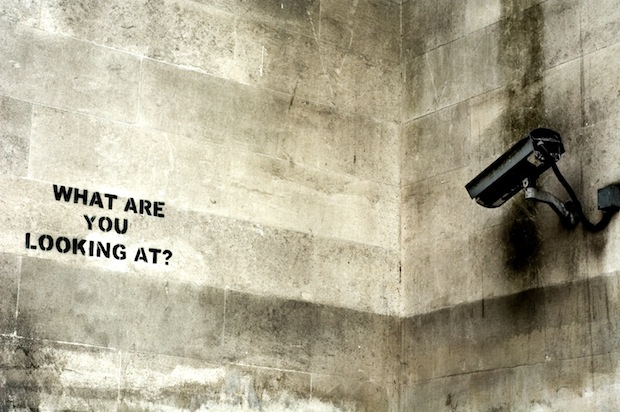Oh, but life’s easier if you’re American. Each and every last way the state meddles with your life is an outrage. Whether it’s forcing you to have health care, or denying you the right to own the gun that Al Pacino has in Scarface, or making you wear a seat belt, or taxing you, or threatening to silence your long-held and proudly defended right to put a pillowcase on your head and be a racist, Big Government is a villain. There are people, the American thinks, and then there is power, and the latter shafts the little guy every chance he gets.
It’s not like that in Britain. And, if you’ve been wondering, which you probably haven’t, why four months on, this country still doesn’t give much of a monkey’s toss about the revelations of Edward Snowden, this is probably the reason. Every few weeks the Guardian releases another blare, and nobody cares at all. Stephen Fry has just signed a petition about it, calling upon European leaders to be very angry with our leaders, and I doubt anybody will care about that either.
At first I thought it was a generational thing. Julian Assange makes a good case, I think, when he speaks of the ‘militarisation of cyberspace’, the state occupation of digital worlds. ‘It’s like having a tank in your bedroom,’ he writes in his book Cypherpunks, and I thought that British indifference lay in the inability of an older generation to grasp that anything online could or should be space as intimate or private as your own physical home.
But it’s more than that. In Britain we do not believe that government is instinctively malign. I certainly don’t, not least because I spent the first 20 years of my life having breakfast with a bit of it, but it’s a widespread perspective, even among those less blessed. Tell us that secret services could read our email, but probably won’t, and it’s the ‘but probably won’t’ bit on which we tend to focus. We shrug. Yes, it could all be used for evil, should dark forces come to rule over us. But this country has no great fear of the rule of dark forces. We have watched them rise elsewhere and concluded, time and again, that they just aren’t our cup of tea. So we shrug and carry on, perhaps for the same reasons we shrug at CCTV.
And yet I remain bothered, instinctively, and it’s been an awkward journey trying to figure out why. So many high-minded and impressive people have expressed complete indifference to me at the Snowden revelations, not always over breakfast, and while I feel strongly that they are mistaken, I have grown hopelessly fat-tongued when trying to counter their view. The most recent was a high-profile journalist — a maverick, no Establishment stooge — who told me the other week that he simply hadn’t been able to figure out what the story here even was.
It’s dishonesty. I think that’s the crux. It’s a world in which things happen, in our name, of which we are not informed. Six months ago we were tying ourselves in knots over the Snooper’s Charter — all about what invasive powers the state required into our digital data — and never was it admitted, even in passing, that our security services had the capacity to do all this stuff anyway, whether granted the new powers they desired or not.
You may perhaps convince me that the state needs access to our online lives to keep us safe. You will probably convince me that, even with this access, the state will never be inclined to act in any way with which I’d have an issue. But you will not convince me that it is right that I should have to learn of this via some renegade American who sends a bunch of emails to a Guardianista blogger who lives in Brazil. We ought already to have known about this stuff. And not because of some ‘oh, everybody knew, it’s obvious’ formation, but because we had, openly, honestly, and without equivocation, been told.
Lucrative clowning in Brussels
Now. Ukip. I’ve written elsewhere about the Godfrey Bloom fandango, all of which I have enjoyed thoroughly. Naggingly, though, I cannot help but notice the extent to which he himself illustrates that Ukip, deep down, makes at least one very good point.
The European Union, they say, is an aloof organisation, a gravy train for a political class all but unknown to its supposed constituents. ‘No shit,’ the ordinary voters of Yorkshire and the Humber might respond, on being informed that Mr Bloom has been lucratively clowning about in Brussels and Strasbourg on their behalf since 2004.
Paradoxically, a landslide Ukip victory in the 2014 European Parliament elections could well make Britain want shot of the place like never before. Today, the party has nine remaining MEPs, and only two of them (Nigel Farage and the eloquent Paul Nuttall) can safely be allowed on telly. Imagine if they had 50! Cripes. Better off out.







Comments